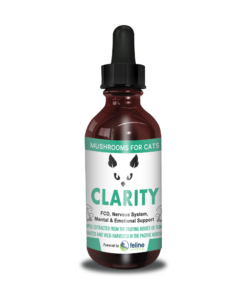Let’s be real – litter box smells can turn your cozy cat home into a nose-wrinkling nightmare. If you’ve ever walked into a room and wondered, “What died in here?” – you’re not alone. The good news? There are several common causes for a nuclear litter box – and even better solutions.
1. Your Cat’s Diet Matters More Than You Think
Believe it or not, what you feed your cat shows up in the litter box – literally. Cats eating highly processed diets full of grains, starches, and unnecessary fillers produce more waste that smells much worse. That’s because these ingredients aren’t biologically appropriate for carnivores. What their bodies can’t use gets dumped into the box (and your airspace).
Cats fed a species-appropriate, fresh food diet tend to have smaller, less frequent poops that barely smell at all. When the food is biologically available, their bodies absorb what they need – and there’s much less to toss out. Try incorporating more fresh or raw food into your cat’s meals. Your nose will thank you.
2. Clay Litter Might Be Making It Worse
While clay litter is popular, it’s not always the best choice when it comes to odor control. In fact, many clay litters contain chemical fragrances that try to mask the smell—but end up making the box smell like a dirty diaper sprayed with perfume. Plus, they often don’t trap bacteria as well as natural litters.
Natural litters (like wood, paper, or walnut-based options) can absorb odors better without synthetic scents. They’re also better for your cat’s health and the planet.
3. Scooping Schedule = Essential
You can use the fanciest litter in the world, but if you’re not scooping it regularly, it’ll still stink. Scoop at least once daily (twice is even better) to remove waste before it builds up and festers. Also, make sure you’re emptying and replacing all litter on a regular basis to keep things fresh.
4. That Box is Holding Onto More Than You Think
Did you know that bacteria, urine, and feces can leach into the plastic of your litter box over time? Even if you’re a scooping superstar, old plastic boxes can harbor lingering smells you can’t scrub away.
Pro tip: Replace plastic litter boxes every 6 -12 months, especially if you notice lingering odors that won’t budge after cleaning.
5. Other Sneaky Smell Sources
– Too few litter boxes (try to have one per cat, plus one extra)
– Covered boxes that trap heat and amplify odor
– Inadequate ventilation in the litter box area
Bottom line: If your litter box smells are out of control, it’s not just about scooping. Look at your litter choice, your cat’s diet, your cleaning habits, and the condition of the box itself. With a few simple changes, you can go from stink city to fresh and clean – without holding your breath.
Also – if your cat is already eating a fresh, species-appropriate diet and you’ve tackled all the usual suspects, the issue might be happening inside the gut. In that case, it could be time for a vet visit. It will also help to support their digestion with a high-quality digestive enzyme or probiotic made just for cats. Helping them break down and absorb nutrients properly can make a huge difference in what comes out the other end – and how it smells.




Recent Comments